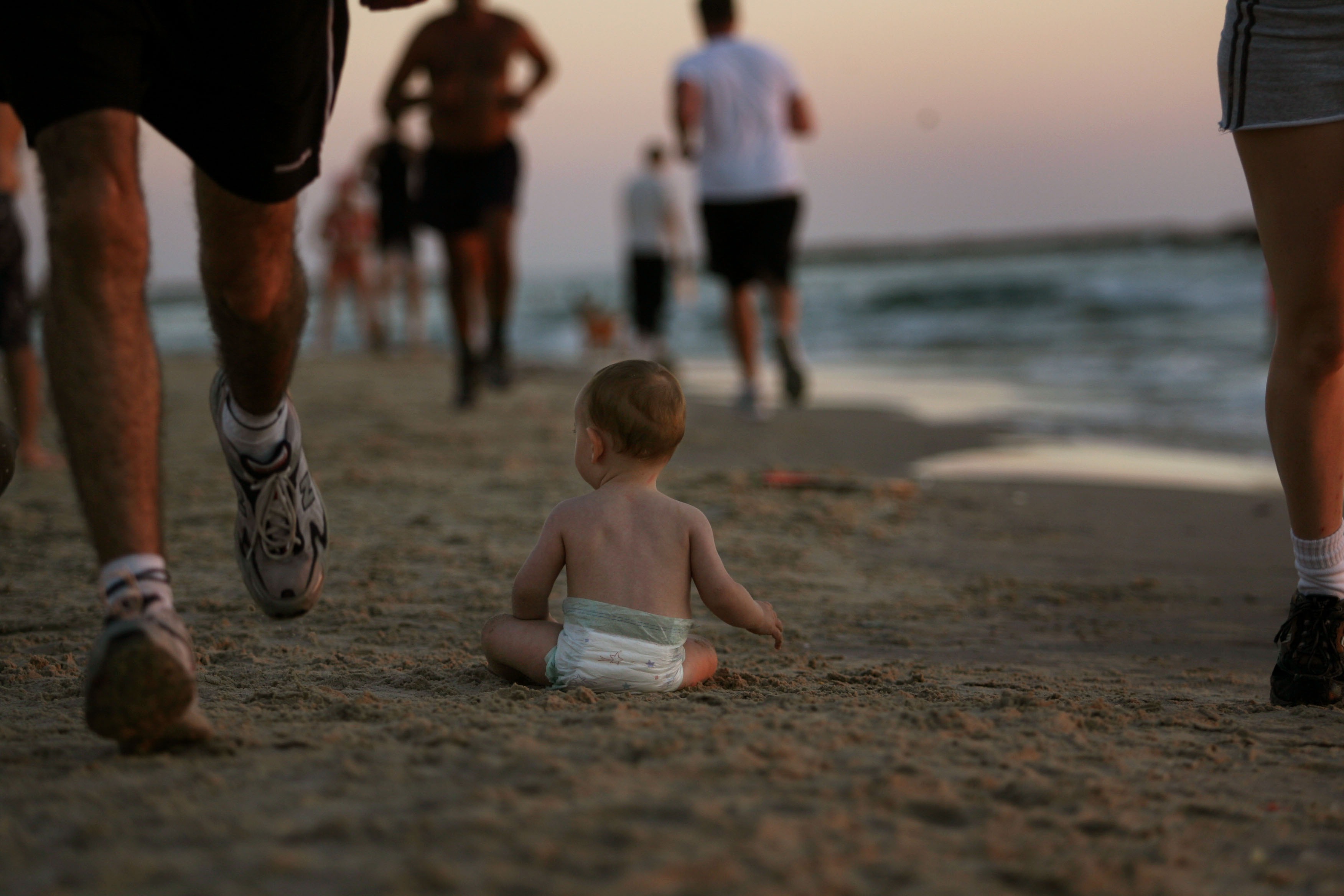Global Warming May Harm Children for Life

A growing body of research concludes that rising global temperatures increase the risk of heat stress and stroke, decrease productivity and economic output, widen global wealth disparities, and can trigger greater violence (see “Hot and Violent”).
Now a new study by researchers at Stanford, the University of California, Berkeley, and the U.S. Department of the Treasury suggests that even short periods of extreme heat can carry long-term consequences for children and their financial future. Specifically, heat waves during an individual’s early childhood, including the period before birth, can affect his or her earnings three decades later, according to the paper, published on Monday in Proceedings of the National Academy of Sciences. Every day that temperatures rise above 32 ˚C, or just shy of 90 ˚F, from conception to the age of one is associated with a 0.1 percent decrease in average income at the age of 30.
The researchers don’t directly tackle the tricky question of how higher temperatures translate to lower income, noting only that fetuses and infants are “especially sensitive to hot temperatures because their thermoregulatory and sympathetic nervous systems are not fully developed.” Earlier studies have linked extreme temperatures during this early life period with lower birth rate and higher infant mortality, and a whole field of research has developed around what’s known as the “developmental origins of health and disease paradigm,” which traces the impacts of early health shocks into adulthood.
There are several pathways through which higher temperatures could potentially lead to lower adult earnings, including reduced cognition, ongoing health issues that increase days missed from school or work, and effects on non-cognitive traits such as ambition, assertiveness, or self-control, says Maya Rossin-Slater, a coauthor of the study and assistant professor in Stanford’s department of health research and policy.
The bigger danger here is that global warming will mean many more days with a mean temperature above 32 ˚C—specifically, an increase from one per year in the average U.S. county today to around 43 annually by around 2070, according to an earlier UN report cited in the study.
For workers who would otherwise make $50,000 annually, a single day of extreme heat during their first 21 months would cut their salary by $50. But 43 such days would translate to $2,150. Multiply that by the total population experiencing such events, and it quickly adds up to a huge economic impact. A greater proportion of citizens failing to reach their full earnings potential implies lower overall productivity and economic output.
All of that comes on top of the ways that high temperatures directly hit the economy, mainly by decreasing human productivity and agricultural yields, according to other research. Unchecked climate change could reduce average global income by around 23 percent in 2100, and as much as 75 percent in the world’s poorest countries, according to research by UC Berkeley public policy professor Solomon Hsiang and coauthors in a 2015 Nature paper (see “Hotter Days Will Drive Global Inequality”). Notably, that excludes the devastating economic impacts of things like hurricanes and sea level rise.
“We know that high temperatures have numerous damaging consequences for current economic productivity, at the time that the high temperatures occur,” Hsiang said in an e-mail to MIT Technology Review. “This study demonstrates a new way in which high temperatures today reduce economic productivity far into the future, by weakening our labor force.”
The good news, at least for certain nations and demographic groups, is that air-conditioning nearly eliminates this observed effect, based on the authors' analysis of U.S. Census data that captures how air-conditioning penetration increased in U.S. counties over time. But that could point to one more way that rising global temperatures will disproportionally harm impoverished nations, or perhaps already have.
“In poor countries in hot climates that don’t have air-conditioning, we could imagine these effects being even more dramatic,” Rossin-Slater says.
The study explored the results for 12 million people born in the United States between 1969 and 1977, incorporating adult earnings information from newly available data in the U.S. Census Bureau’s Longitudinal Employer Household Dynamics program. The researchers sought to isolate the impact of temperature, and control for other variables, by using “fine-scale” daily weather data and county-level birth information.
“This study makes it very clear to see how climate change in the next few decades can affect our grandchildren, even if populations in the distant future figure out how to cool things back down,” Hsiang said.
Deep Dive
Climate change and energy
The problem with plug-in hybrids? Their drivers.
Plug-in hybrids are often sold as a transition to EVs, but new data from Europe shows we’re still underestimating the emissions they produce.
Harvard has halted its long-planned atmospheric geoengineering experiment
The decision follows years of controversy and the departure of one of the program’s key researchers.
Why hydrogen is losing the race to power cleaner cars
Batteries are dominating zero-emissions vehicles, and the fuel has better uses elsewhere.
Decarbonizing production of energy is a quick win
Clean technologies, including carbon management platforms, enable the global energy industry to play a crucial role in the transition to net zero.
Stay connected
Get the latest updates from
MIT Technology Review
Discover special offers, top stories, upcoming events, and more.